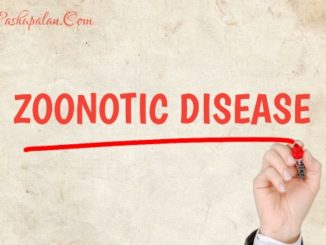The corona virus (COVID-19) pandemic, caused by SARS-CoV-2 (severe acute respiratory syndrome coronavirus 2) is considered as one of the most devastating pandemics affecting more than 219 countries and territories in the world. The pandemic was thought to spread because of negligence in the standards and biosafety models in the local food markets of Wuhan, Hubei province in China, where people were enjoying their regional food eating habits including consumption of bats, snakes and pangolins. This favored the cross contamination and transmission of infectious corona viruses between the animals and from animals to humans. Finally, it was identified as a severe outbreak of corona virus in humans after confirmation of certain mysterious cases of pneumonia in December 2019. Later on, World Health Organization (WHO) named this novel coronavirus pneumonia as “COVID‐19” (coronavirus disease 2019) on 11 February, 2020, and declared it as a pandemic in March, 2020. Till date, the pandemic has caused huge public health and economic losses world-wide. During this pandemic, veterinarians played multiple roles for bringing out the people from this global health crisis via various ways.
Veterinarian’s Contribution towards Animal’s Health
1. Provision of essential services for livestock
During the pandemic, when all services were shut down due to lockdown, veterinarians provided constant and regular essential services in the form of diagnosis and treatment of sick animals, artificial insemination in cattle and buffaloes, inspection and management of livestock farms and gaushalas, routine vaccination (FMD, HS, BQ, PPR) and deworming programs, ante and post mortem examination, and control of contagious diseases amongst livestock for the purpose of ensuring the production of safe livestock products from them, thereby safe guarding the health of animals and humans. On one hand, these livestock products are directly involved in protection of people from COVID-19 by stimulation of immune system, as these are rich sources of essential amino acids, proteins, minerals (zinc, selenium, iron) and vitamins (A, D, E, folate, B6 and B12). Due to inherent immune enhancing properties of milk, Mother Dairy has launched “Haldi Milk” to boost the immunity of people during this pandemic. Since health experts of various countries have recommended more of these livestock products for enhancing the immunity of front line workers, health workers and corona patients, hence the demand of these products increased tremendously during the pandemic. Veterinarians worked hard round the clock by providing 24*7 hours essential services for ensuring a constant supply of these livestock products for boosting the immunity of population against this viral disease. Also these livestock products remained a constant source of income for poor farmers when they need it urgently.
2. Provision of door step services for animals of containment and micro containment zones
In India, as per the guidelines of government, any area having more than 5 COVID-19 positive cases can be designated as micro containment zone under Disaster Management Act/Epidemic Diseases Act for checking the further spread of COVID-19 to surrounding areas and nearby localities. During setting up of micro containment zone, all entry and exit points of the zone are sealed except for essential services. Veterinarians deputed in these micro containment zones ensured the provision of uninterrupted supply of animal fodder, health care facilities for the domestic animals, motivation of people for sample testing, strict enforcement of home quarantine, contact tracing etc. Veterinarians provided all these services till the area gets denotified again as per the guidelines of the government.
3. Welfare of stray animals
Good animal welfare practices include disease prevention, veterinary treatment, appropriate shelter, adequate management, proper nutrition and humane handling. Since pandemic has hit the economy very badly due to lockdown restrictions and loss of employment, hence a fear is prevailing in the mind of people regarding shortage of food and shelter for humans and animals in the near future. This food scarcity may occur due to change in climate conditions (both macro and micro) and increase in some parameters such as population growth, food prices and environmental stressors. This may cause stray animal welfare problems including increase in the number of stray animals (which leads to increased number of sick animals and thus increased mortality) and general discomfort (hunger, pain, thirst, fear, stress etc). To counteract with all these problems, veterinarians are working in collaboration with Non-Government Organizations (NGO’s) and animal welfare groups (SPCA, PETA, PFA, Blue cross) for the benefit of society via various ways viz. supply of feeds, treatment of sick and stray animals, vaccination of stray animals etc to prevent any cross contamination or transmission of infections from animals to humans, and vice-versa.
Veterinarian’s Contribution towards Human’s Health
1. Diagnosis and testing of COVID-19
Firstly, corona virus pandemic is spreading at a very fast pace, hence timely testing and isolation policy remains crucial. Secondly, due to vast human population in India, the increase in testing capacity is very important for early detection and contact tracing of infected people for isolation and quarantine measures. Many animal corona viruses such as porcine epidemic diarrhea virus (PED), SARS-CoV-1, MERS, influenza viruses etc possess similar DNA testing procedures as that of SARS-CoV-2, hence veterinarians possess vast experience in the field of RT-PCR testing in veterinary diagnostic labs across the world. Also due to heavy burden on human health systems, and in order to provide assistance to the overwhelmed human diagnostic labs, veterinary laboratories with modern diagnostic facilities have come forward for testing of COVID samples by RT-PCR technique. The notable examples in this category include various national and international organizations, veterinary universities and animal research institutes (HSADL, Royal GD Animal Health etc) where surveillance of sample testing and research studies are being carried out in their virology, immunology, microbiology and or public health departments. In initial stage of disease, antigen test works well whereas in later stages, antibody tests are more useful. Thus antibody-based test is more useful in the identification of symptomless carriers which are considered main spreaders of this infection. Hence accuracy can be achieved only by combination of both antigen and antibody tests. Keeping this in view, for quick testing of disease from nasopharyngeal swabs, a veterinarian, Dr Bishor from Kerala, has developed the first indigenous antibody-based testing kit, known as Sensit Rapid Kit, which can provide results within 20 minutes with an accuracy rate of 95%. This may ensure early and rapid detection of infection, which will check further spread of infection among masses in the community.
2. Development of COVID-19 vaccine
To curb the pandemic, there is an urgent need of effective vaccine. Though the development of COVID-19 vaccine is quite a challengeable job, yet it is not impossible. Coronavirus vaccines are widely available in veterinary practice for canine CoV, feline CoV, bovine CoV, porcine epidemic diarrhea virus and infectious bronchitis virus in chickens. None of these corona virus vaccines are protective to humans in any way against SARS-CoV-2. Thus from the experience of veterinarians, firstly it is quite clear that both inactivated and modified live vaccines do work against corona viruses in many species. Secondly, for significant protection from many animal corona viruses, a T cell-mediated response is required. However evidence suggests that for COVID-19, type-I IFN is a key to prevent further viral replication, T cell exhaustion and cytokine storm. Veterinarians possess vast experience in the field of immunology in vaccine development for animal corona viruses other than SARS-CoV-2. This experience of veterinarians can be used to overcome the difficulties associated with development of COVID-19 vaccine. The views can be shared between medical scientists and veterinarians regarding development, efficacy, safety, technical and clinical trials of COVID-19 vaccine. This will definitely benefit in optimizing vaccine directed against SARS-CoV-2 in humans. For instance, expert veterinarians in HIPRA (a multinational Spanish animal health company) are providing their expertise, experiences and knowledge for development of COVID-19 vaccines as they are specialized in research, production and marketing of vaccines for animal health. Similar to this, Pfizer-BioNTech COVID-19 vaccine is being produced by an American company Pfizer under the able guidance of its chief executive officer – Albert Bourla, who is a veterinarian. Dr. Albert Bourla has used his scientific research experience for the production of this vaccine, as a successful candidate against COVID-19.
3. Delivery and administration of COVID-19 vaccine
Since veterinarians possess vast experience in the field of production, handling, storage, transportation and administration of animal vaccines also, hence their services are utmost important for public health point of view regarding delivery and administration of COVID-19 vaccine. Secondly, veterinarians are very well aware about the maintenance of cold chain and handling of vaccines. Hence their services are particularly important when health systems are badly challenged during this global crisis. Recently, USA government has given temporary emergency authorization to veterinarians for administration of COVID-19 vaccine to healthy population. Veterinarians are also providing online registration services to humans for COVID-19 vaccination.
4. Supply of life-saving equipment and devices to human hospitals
During sudden onset of pandemic, there was huge demand for safety gears and life-saving equipments and devices. During this crisis, veterinarians helped the society by donating ventilators, oxygen cylinders, RT-PCR machines, ultrasound machines etc from their well-equipped clinics and hospitals to the health authorities. Many animal health laboratories and companies in Spain (CISA, HIPRA) worked day and night for breaking the chain of COVID-19 transmission. HIPRA offered its well-equipped laboratories fully loaded with PCR diagnostic technology and 3 D printing machines to human health systems.
5. Miscellaneous services for the mankind
Due to heavy load of patients in medical hospitals during the pandemic, veterinarians in some countries, after proper training, are also assisting medical doctors for imparting various services to corona patients. These miscellaneous services include assistance in triage, monitoring of serious patients in ICU’s, administration of intravenous fluids and medicines, dispensing of medicines, maintenance of anesthesia during surgeries, placing of IV catheters in veins, treatment of medical emergencies (hemostasis, bandaging, splinting, local anesthesia and suturing), providing services for trauma and first aid conditions, maintenance of airways (oral, nasal, pharyngeal and intubation), phlebotomy, attending daily OPD cases etc.
Veterinarian’s Contribution towards Human and Animal Health
1. Creation of awareness among animal owners
Though at present there is negligible evidence which shows that animals may be involved in spread of COVID-19 to humans, yet its possibility can’t be ruled out. Worldwide there are very few cases of COVID-19 reported in animals. In Spain, a cat owned by a COVID-19 affected patient was detected positive for SARS-CoV-2. Similarly, four tigers and two lions were confirmed positive for SARS-CoV-2 in New York’s Bronx zoo. Other animals which are suspected for SARS-CoV-2 infection are wild minks, civet cat, ferrets, dogs etc. Till date, whatever the research reports are available, it appears that in contrast to dogs, cats are more susceptible to SARS-CoV-2 infection. On the other hand, whether there is community transmission between farm workers and these animals or not – is still a big question? Hence there is a need of stringent research studies for confirmation of this unknown fact that how animals are affected by SARS-CoV-2 and further transmit the disease if it happens so. So meantime to tackle with this problem, veterinarians are playing great role in creating awareness among animal owners regarding maintenance of personal hygienic practices including washing of hands before and after handling of animals especially dogs and cats. Awareness is also being created for avoiding any physical contact (sleeping, eating or kissing the pet animals) or close contact (food items, equipments, utensils etc) with these animals. Among pet owners, awareness is being created to notice any type of symptoms such as fever, respiratory distress, lethargy, coughing, sneezing, pneumonia, diarrhea etc in their pets. If any of these symptoms is noticed either in dogs or cats, they must be isolated immediately and should be treated by veterinarians after taking all preventive measures including wearing of safety gears (PPE, masks, gloves, goggles, shoes etc) with proper veterinary care facilities. Also humans with suspected or confirmed COVID-19 test reports should avoid contact with animals including pets, livestock and wild life.
2. Veterinarians in “ONE HEALTH” fight against COVID-19
If we look at the history of viral outbreaks, Spanish flu (1918), SARS (2002), MERS (2012) and Western African Ebola virus epidemic (2013) were caused by H1N1 influenza A virus, SARS-CoV-1, MERS-CoV and Ebola virus respectively. The primary reservoir for all these viruses was animals (birds, bats, exotic animals etc). However, due to climate change and increasing human population, there is increase in penetration of human habitation into new geographical areas, thereby resulting into increased interaction between humans and animals (both domestic and wild). Moreover, exotic food eating habits in many parts of the world and medicinal beliefs are also forcing the entry of humans into the animal space in the wild. These changes lead to the spread of existing or new emerging zoonotic diseases between humans and animals. COVID-19 pandemic is also a result of this type of interaction which was transmitted from bats to humans via food chains. It means though virus originally belonged to some other species of animals, yet it caused severe pathogenic disease in humans. Also there are chances of reverse zoonoses i.e. transmission of infection from humans to animals. Today, more than half of all infections that people can get can be spread by animals. Also according to an estimate, zoonotic diseases cause about 2.5 billion cases of sickness and 2.7 million deaths every year in the world.
Veterinarians possess significant roles in – biosecurity measures to prevent the ingress of viral diseases in population, surveillance for testing of infected animals from the herd and their isolation. These approaches are important for successful containment of emerging and transboundary epizootics. One Health concept emphasizes on the interactions between animals, humans and environment, and summarizes that human health is closely related to animal health and environmental health. In this unique concept, veterinarians possess primary and central role in maintenance of healthy ecosystems, thereby preventing emergence of transboundary diseases between humans and animals. Keeping in view, the importance of One Health concept, recently government of India has planned to set-up “National Institute of One Health” at Nagpur, Maharashtra.
Conclusion
Veterinarians are playing multiple roles for the well-being of animals, humans and environment in this grappling world of COVID-19 pandemic. Though on one hand, world-wide many veterinarians lost their lives due to COVID-19 by serving the community, yet on the other hand, veterinarians have shown their professional values and commitment to the communities and One Health initiatives.
References
- CDC. 2021. Centers for Disease Control and Prevention. https://www.cdc.gov/coronavirus/2019-ncov/daily-life-coping/animals.html, 25 March, 2021.
- De Melo, R.T., Rossi, D.A., Monteiro, G.P. and Fernandez, H. 2020. Veterinarians and One Health in the fight against zoonoses such as COVID-19. Frontiers in Veterinary Science. 7: 576262.
- Fathke, R.L., Rao, S. and Salman, Mo. 2020. The COVID-19 pandemic: A time for veterinary leadership in one health. One Health. 11(20): 100193.
- Jamilloux, Y., Henry, T., Belot, A., Viel, S., Fauter, M., El Jammal, T., Walzer, T., Francois, B. and Seve, P. 2020. Should we stimulate or suppress immune responses in COVID-19? Cytokine and anti-cytokine interventions. Autoimmunity Reviews. 19(7): 102567.
- Segales, J., Puig, M., Rodon, J., Avila-Nieto, C., Carrillo, J., Cantero, G., Terron, M.T., Cruz, S., Parera, M., Valencia, A., Blanco, I., Clotet, B. and Vergara-Alert, J. 2020. Detection of SARS-CoV-2 in a cat owned by a COVID-19 affected patient in Spain. Proceedings of the National Academy of Sciences. 117(40): 24790-24793.
- Tizard, I.R. 2020. Vaccination against coronaviruses in domestic animals. Vaccine. 38(33): 5123-5130.
- Wang, L., Mitchell, P.K., Calle, P.P., Bartlett, S.L., McAloose, D., Killian, M.L., Yuan, F., Fang, Y., Goodman, L.B., Fredrickson, R., Elvinger, F., Terio, K.,Franzen, K., Stuber, T., Diel, D.G. and Torchetti, M.K. 2020. Complete genome sequence of SARS-CoV-2 in a tiger from a US zoological collection. Microbiology Resource Announcements. 9(22): e00468-20.






Be the first to comment